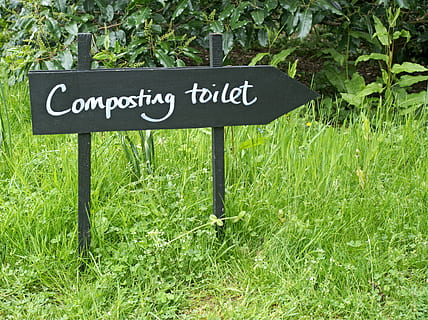After a few months caring for your compost pile, turning over the pile once in a while, warding off insects and pests, and keeping the pile damp, How to Compost it is only pure (and you should accomplish that) to get essentially the most out of your compost. And this implies utilizing the compost properly and successfully.
 You will know the proper time to harvest the compost once you no longer acknowledge the unique supplies that you simply used to make the pile. The completed compost should look extra soil-like or humus-like. It's dark, loose and smells earthy. If you harvest the compost out of your pile, it would be finest to unfold it out and uncovered it to the air. This may further dry the compost and will make is a easier to use.
You will know the proper time to harvest the compost once you no longer acknowledge the unique supplies that you simply used to make the pile. The completed compost should look extra soil-like or humus-like. It's dark, loose and smells earthy. If you harvest the compost out of your pile, it would be finest to unfold it out and uncovered it to the air. This may further dry the compost and will make is a easier to use.
If you discover some greater chunks nonetheless not totally decomposed, throw it again to the subsequent compost pile you're going to make. One way to get the not totally decomposed materials, you need to use a display screen or wire mesh large sufficient to let the compost by means of but small enough to screen the remaining massive chunks.
As you most likely know by know, compost has rather a lot of benefits that is why it is usually encouraged among gardeners. For starter, compost helps improve the general soil structure. This means the density and porosity of the soil is improved permitting plants' roots to seize a hold on the soil higher. The soil additionally becomes more resistant from erosion and runoff. Likewise, adding compost to the soil allows better water retention.
Other than the soil structure, composting the macro and micronutrients compost incorporates provide plants with the needed minerals and nutrients to grow wholesome. The soils holds in the nutrients better when compost is added to the soil. Not to say, compost improves and stabilizes the soil's acidity levels as effectively. These are however just a few the explanation why compost needs to be utilized by gardeners.
Let's go back to your newly harvested compost. After removing people who didn't totally decomposed and after curing the completed compost, the next steps could be utilizing what you've gotten been brewing these previous few months.
Among the most common usage of compost is as soil amendment. What you do is add the compost to your soil and allow it to draw out the nutrients and different essential minerals for your plants to absorb. You may as well unfold the compost over the soil before the planting season. You may apply to selected plant surfaces if you have not enough to go around with.
You too can use your compost as mulch. Mulch is a protecting layer spread over the soil to assist counter the consequences of the local weather. You may want an ample provide of compost if you employ it mulch although. To use it as mulch, you want two to six inches of compost covering the soil surfaces of plants, timber, shrubs, and uncovered slopes. As mulch, the compost will assist lessen weed development, prevent erosion, appeal to earthworms, and assist retain water.
Another usage of compost is as potting combine. Mix the compos with sand and soil and voila! You'll have an awesome high quality potting combine which you should utilize on your plants. A mix of 1 half sand, 2 components compost, and 1 to 2 parts soil seems to be the overall agreement for using compost as potting mix.
Getting probably the most out of your compost is just natural. You worked hard creating your compost and you must be taught to reap the complete benefits.